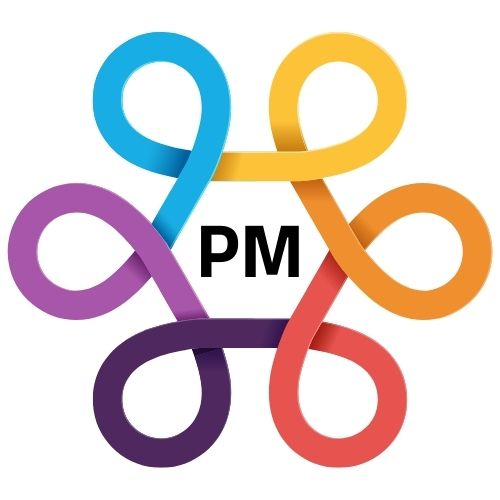How to Create a Digital Marketing Strategy Tailored for Your Specific Industry

How to Create a Digital Marketing Strategy Tailored for Your Specific Industry...
In today’s digital landscape, a one-size-fits-all approach to marketing is no longer effective. Businesses must tailor their digital marketing strategies to fit the unique characteristics of their industry, audience, and goals. Whether you're in healthcare, e-commerce, education, or hospitality, the key to success is developing a personalized strategy that resonates with your target audience and aligns with your business objectives. Here's how you can create a digital marketing strategy tailored for your specific industry.
1. Understand Your Industry Landscape
Before diving into any marketing tactics, it's essential to understand the current landscape of your industry. Research your competitors, the state of the market, and any regulations or trends that might affect your business.
Identify key players in your industry and analyze their digital marketing efforts. What platforms are they using? What type of content are they sharing? What keywords are they ranking for? Tools like SEMrush, Ahrefs, and SpyFu can help you gain insights into your competitors' strategies.
Stay up-to-date with industry news, reports, and studies. Understanding emerging trends, technologies, or consumer behavior shifts will allow you to adjust your strategy accordingly. For instance, the healthcare industry might be focusing more on telehealth and patient engagement, while e-commerce businesses are doubling down on social commerce.
Some industries, such as healthcare and finance, have strict regulations when it comes to advertising and content. Make sure you're aware of these regulations and how they may affect your marketing strategy.
2. Define Your Target Audience
Every industry has its own target audience, and understanding who you are marketing to is crucial for a tailored strategy. Different industries have distinct customer personas, and what works for one may not work for another.
Develop detailed buyer personas that reflect the demographics, behavior, needs, and pain points of your target audience. If you're in the education industry, your target personas might include prospective students, parents, or teachers. In contrast, a real estate business would focus on homebuyers, renters, or investors.
Divide your audience into segments based on criteria such as location, age, purchasing behavior, or interests. This segmentation allows you to create more targeted campaigns that speak directly to the needs and motivations of each group.
3. Set Clear and Measurable Goals
The digital marketing strategy for your industry should be driven by clear, measurable goals that align with your business objectives. Goals will vary depending on your industry, but some common goals include increasing brand awareness, generating leads, driving traffic, or improving sales.
Use the SMART framework to define your goals—Specific, Measurable, Achievable, Relevant, and Time-bound. For example, a retail business might set a goal to increase online sales by 15% in the next quarter, while a nonprofit might aim to raise awareness of a cause and gain 500 new followers on social media.
Establish KPIs that will help you track your progress. Common KPIs include website traffic, conversion rates, lead generation, click-through rates, and customer retention rates.
4. Choose the Right Digital Marketing Channels
Different industries thrive on different digital marketing channels, so it’s important to select the ones that are most relevant to your business and audience.
Social media platforms are an effective way to reach a broad audience, but not all platforms are suitable for every industry. A B2B company might focus on LinkedIn, while a fashion brand might invest more heavily in Instagram. Educational institutions might use Facebook and YouTube to post informative content, while a tech startup may lean more on Twitter and product forums.
Every business should focus on optimizing its website for search engines. SEO efforts vary depending on your industry. For instance, a legal firm will need to focus on local SEO and long-tail keywords related to its practice areas, while a healthcare provider should focus on ranking for conditions, treatments, and services.
PPC advertising, including Google Ads and social media ads, can offer quick returns but requires a tailored approach. Industries with high customer lifetime value, like real estate or education, may benefit from investing in PPC campaigns that target specific keywords.
Whether you're running an e-commerce store or managing an event planning business, email marketing remains one of the most effective ways to nurture leads and keep customers engaged. Tailor your email campaigns with industry-specific content, offers, and calls-to-action (CTAs).
5. Create Industry-Specific Content
Content is king, but it must be relevant to your industry. Tailoring your content marketing efforts to suit your industry ensures you’re delivering value that speaks directly to your audience’s interests and needs.
If you're in the education industry, for example, you might create blog posts, videos, and infographics explaining the benefits of a specific course or offering tips on choosing the right college.
If you're in the tech or SaaS industry, create detailed product demos or tutorials that highlight how your product solves specific pain points for your customers.
Sharing industry-specific case studies or testimonials can build trust and demonstrate your expertise. For example, if you run a marketing agency for the healthcare industry, you might showcase successful campaigns that helped healthcare providers grow their patient base.
6. Utilize Automation and AI
Industries with large customer bases, such as e-commerce or travel, can greatly benefit from automation tools powered by AI. Whether it’s automating email campaigns, social media posting, or customer support with AI-powered chatbots, automation can save time and improve efficiency.
A travel agency might use chatbots to provide 24/7 customer support, answering frequently asked questions and helping customers book travel packages. A healthcare organization can use chatbots to schedule appointments or provide basic medical advice.
AI tools can provide deeper insights into customer behavior, preferences, and trends, allowing for data-driven decision-making and more effective marketing strategies. By utilizing AI to analyze website traffic, social media engagement, and conversion rates, you can optimize your campaigns for maximum results.
7. Monitor and Adjust Your Strategy
Digital marketing is dynamic, and your strategy should be adaptable. Continuously monitor your campaigns using analytics tools like Google Analytics, social media insights, and CRM systems. Assess the performance of your campaigns, identify areas of improvement, and make adjustments as needed.
Regularly test different elements of your marketing campaigns, such as ad copy, email subject lines, landing pages, and CTA buttons. A/B testing helps you refine your approach and optimize for higher engagement and conversions.
If a particular channel or tactic isn’t yielding the expected results, don't be afraid to pivot. For example, if your paid ads aren’t converting as well as anticipated, consider revisiting your targeting options or ad copy to ensure it aligns with your industry’s needs.
Conclusion
Creating a digital marketing strategy tailored to your specific industry requires a deep understanding of your audience, market trends, and business goals. By selecting the right digital channels, producing industry-specific content, and leveraging automation and AI, you can create a more effective and efficient strategy that drives real results. As industries continue to evolve, adapting and refining your digital marketing efforts will ensure you stay ahead of the competition and continue to engage with your target audience in meaningful ways.
